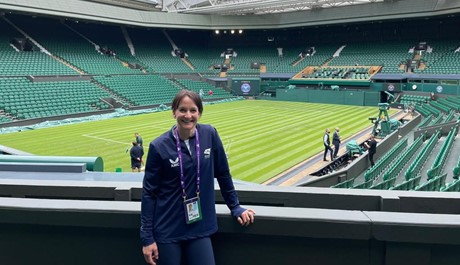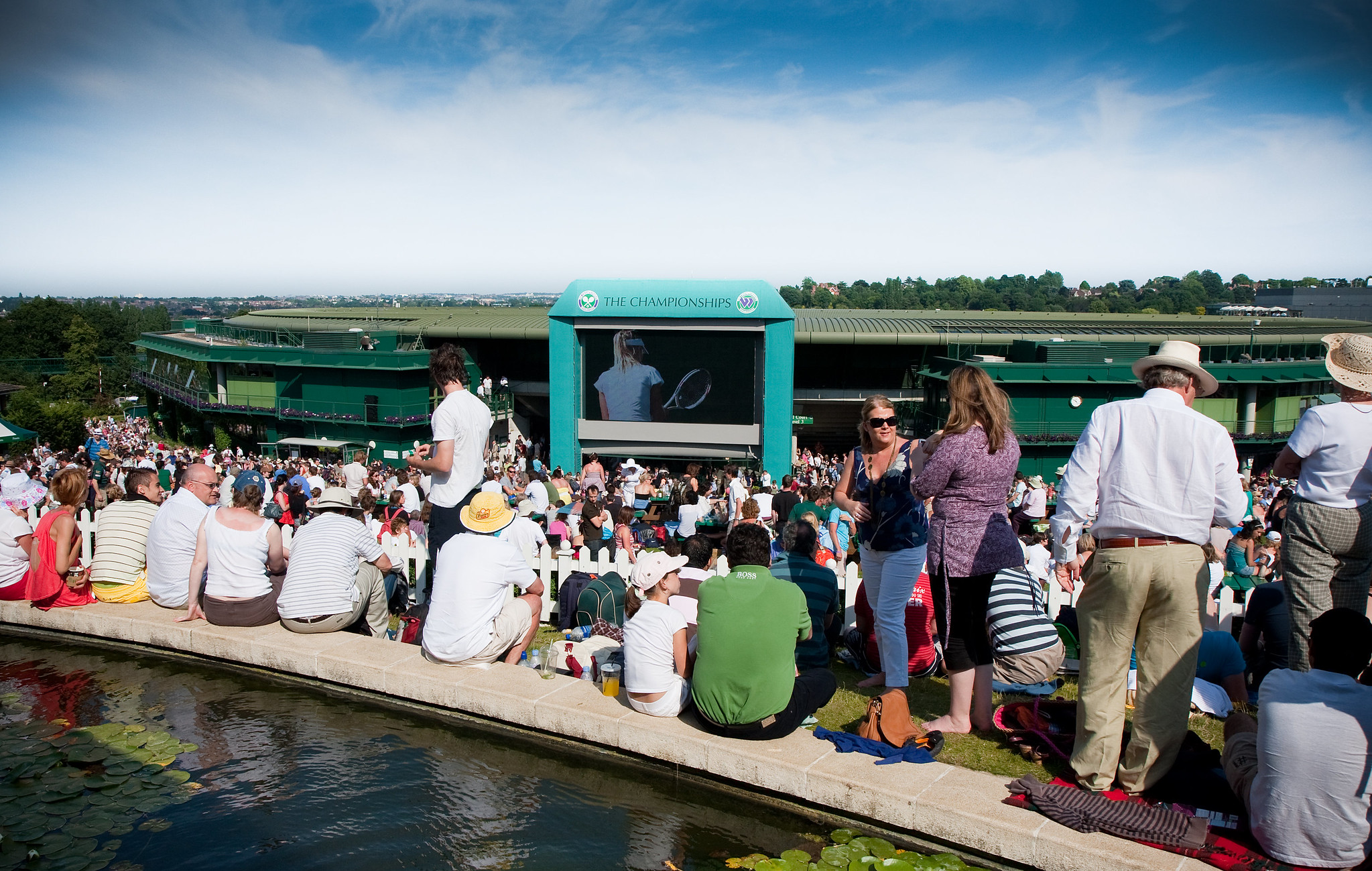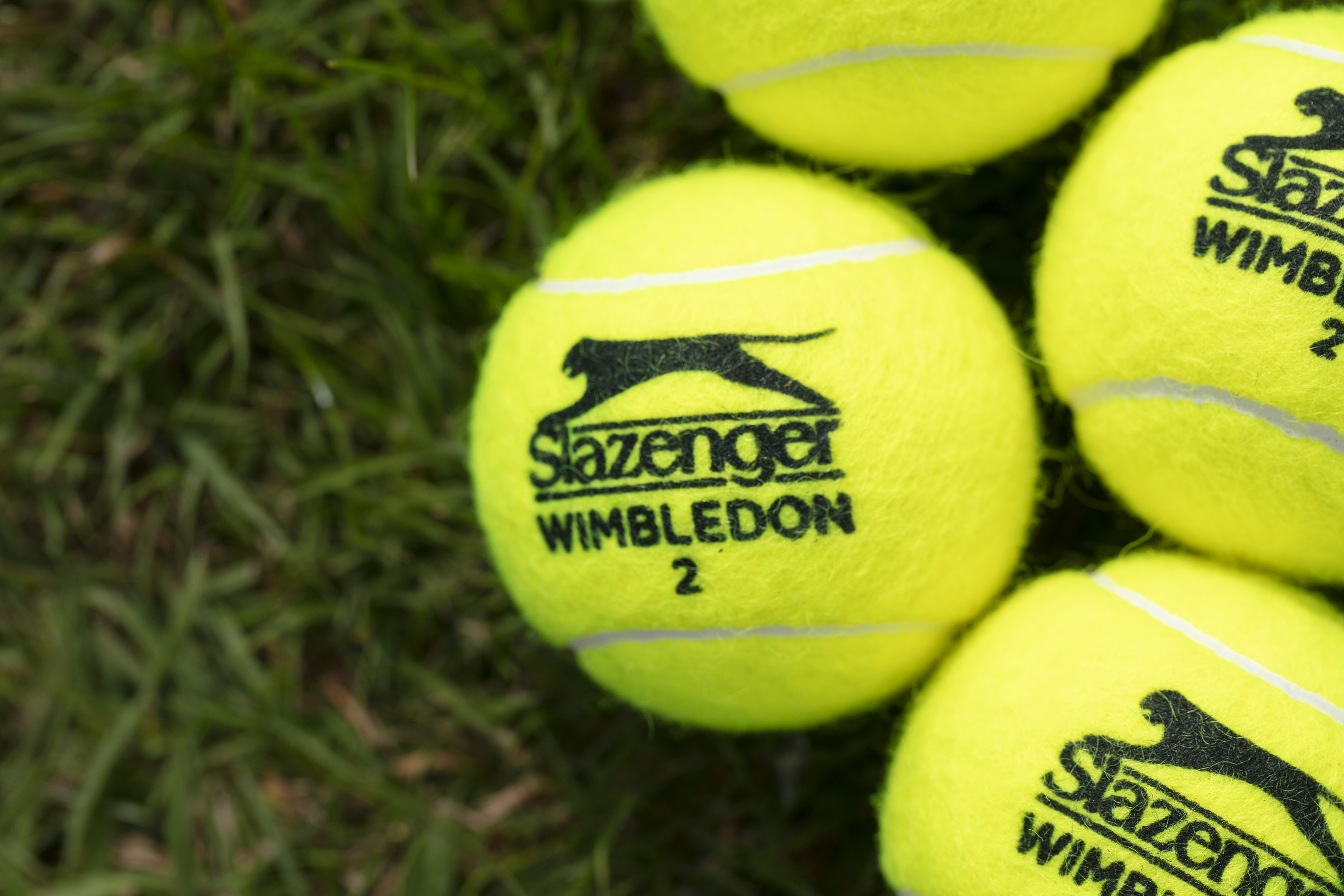This content is associated with The Open University's Sport and Fitness courses and qualifications.
Samantha, what is your role at Wimbledon?
I am a sport rehabilitation therapist. My role is to get the British players prepped and ready for their matches which, may include taping, massage, mobility, and warming up. Additionally, I also help them to recover afterwards and treat any minor injuries.
Is this your first time working at Wimbledon?
No, I worked last year (2021) during COVID, which was a very strange environment. We were really restricted in numbers as to who could be with the players in a secure bubble at a hotel. Normally the players, if they're top 100, have their own entourage of a physio and a fitness trainer with them, but because of the bubble, they were only allowed one other person with them. Last year was very intense because only one rehab therapist and one physiotherapist were allowed in the bubble to cover all the British players.

What does your normal working day look like?
You normally find out the day before what players want from you. Depending on who's on court when, the players that are playing the following day get priority for that day in terms of order of play. Typically, you start at 7am with the first player who may want some pre-treatment, such as taping, mobility or warm-up exercises before they hit the practice court. After practice, the players tend to shower, change, have lunch and then you repeat that pre-treatment process again for them prior to their match.
Following the match, we are there to help them recover once they have spoken with the media, had something to eat and been debriefed by their coach. Recovery can involve cool-downs, mobility, massage, and any specific treatment they may need. Now that centre court has a cover and floodlights, some players do not come off court until 10pm. Players often prefer to see you as the last thing in their day just to help them sort of switch off and recover.
It sounds like a very hard and long working day, so do you enjoy Wimbledon?
I do. I mean, it's the showcase of British tennis so it is a huge privilege to be involved in it. It's very long days but it won't be the same this year because there'll be loads more staff available to work with the players and we're likely to do a shift pattern this year. Or, if you're working with one specific player, you may be allocated exclusively to that player this year. If they're not playing that day, then you won't need to be on duty so much, but you can make yourself available to look after the other British players who may need you, even if they're just doing training on that day.
What is the best part of Wimbledon?
The buzz. It's such a beautiful place to work, it is incredible. It is such a lovely environment to work in and the players are always good and excited to be playing at Wimbledon.









Rate and Review
Rate this article
Review this article
Log into OpenLearn to leave reviews and join in the conversation.
Article reviews